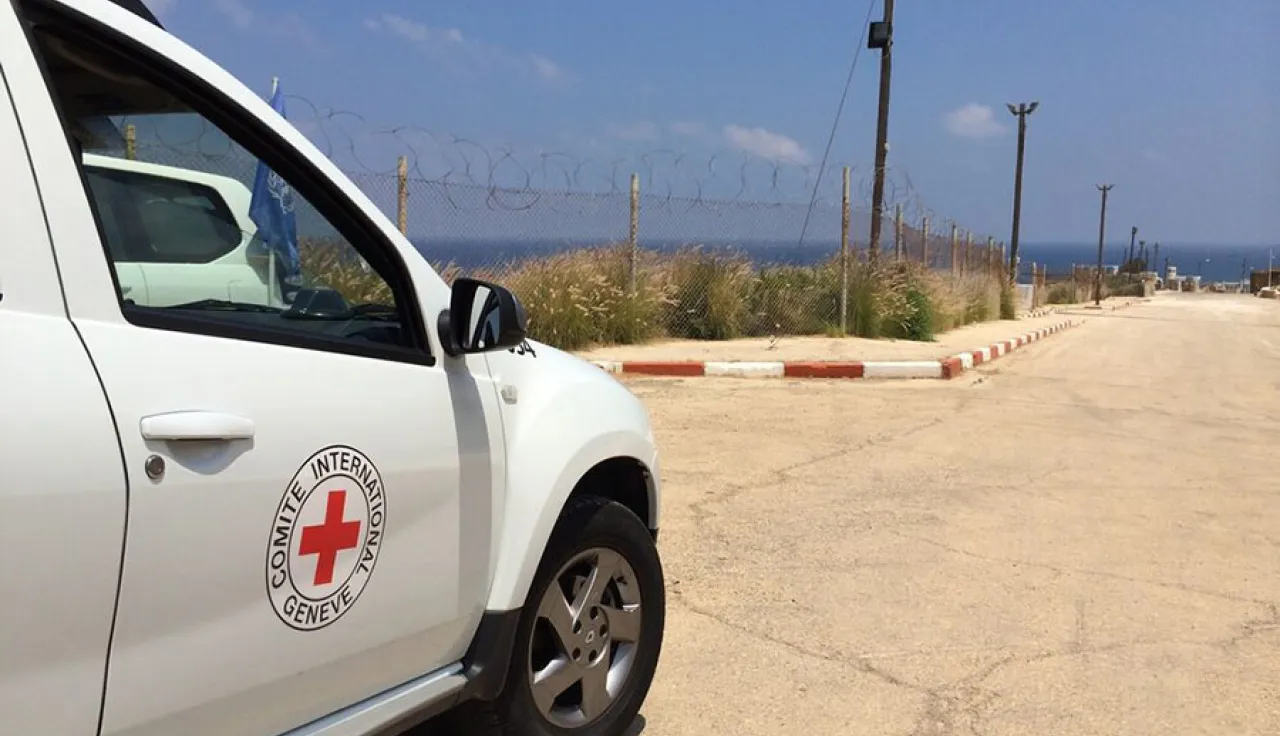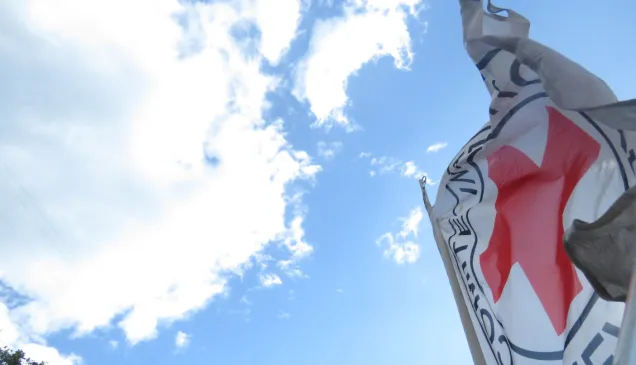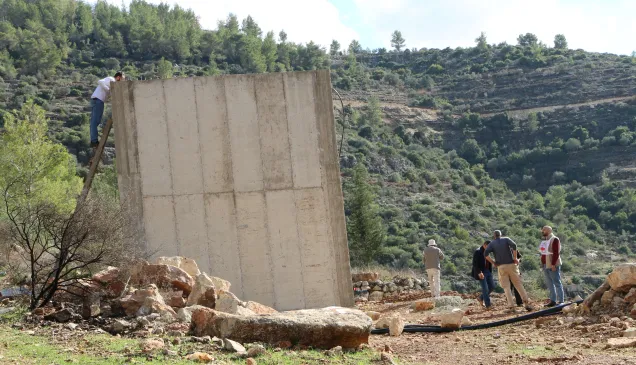From Israel to Lebanon: Helping people return home

It is a short strip of land, only 100-150 metres long, running along the edge of a cliff overlooking the Mediterranean Sea. The place is stunningly peaceful, so quiet that small wild animals come here to rest. And yet, it is strongly charged with invisible human emotions: anxiety, fear, sorrow, joy and hope. It is a no man's land and most of those who cross it never come back. It is a place where repatriations between Israel and Lebanon happen. Representatives of the International Committee of the Red Cross (ICRC) are among the very few people in the world who are allowed to enter this land to carry out this task. They collect people and human remains and take them home.
It takes only a few minutes to cross the no man's land but we often need weeks or sometimes even months to make this happen.
On this bright and sunny summer day, ICRC representatives have come from Tyre to pick up someone returning to Lebanon from Israel. Their colleagues from Tel Aviv bring the person to the iron fence separating Israeli territory from the no man's land. After the handover papers are signed, the person passes through the gate and is accompanied to an ICRC car with a flag waving in the light sea breeze. The procedure unfolds quickly and quietly, without disturbing the calm of the place. The car sets off and within a minute or so is out of the no man's land. Following formalities at the Lebanese border, the person is handed over to representatives of the Lebanese authorities in the presence of relatives. Another set of papers is signed and the ICRC's work is completed.
"I've done this so many times that I've actually lost count," says Riad Dbouk, who has been with the ICRC for 33 years. "Over the past three decades, I've participated in hundreds of repatriation operations, but each one is unique and I remember them all. Behind every repatriation, there is an individual human story, often full of suffering and pain, as most of those being repatriated found themselves in a foreign land because of war."
With Israel and Lebanon formerly in a state of war, they do not have diplomatic or other relations. The ICRC therefore acts as a neutral intermediary for repatriating their citizens, alive or dead. This humanitarian role is appreciated and respected by both countries.
"It is not on the request of the authorities that we facilitate such repatriations but exclusively on the request of people who wish to be repatriated or families whose relatives died on the other side of the border and who want their remains to be brought home," says Christine Rechdane, who is in charge of repatriation operations between Israel and Lebanon at the ICRC delegation in Beirut. "Before carrying out such operations, we make sure that repatriations have the full consent of the individuals themselves or their families when it comes to human remains."
"It takes only a few minutes to cross the no man's land from one country to the other, but we often need weeks or sometimes even months to make this happen," says Christine. "We have to make sure that all the administrative procedures are properly prepared and observed, all the paperwork collected, translated and certified, all the authorizations received from the authorities on both sides and all our movements coordinated."
... when you participate in such operations, you cannot stay emotionally indifferent (...) you silently hope that all those coming back home will finally find peace.
Sometimes repatriations require a huge logistical effort and take much longer to be prepared and carried out. In July 2008, the ICRC facilitated a large-scale handover of freed detainees and human remains between Israel and Lebanon. Eleven trailers were used to transport 199 coffins containing mortal remains that were handed over to Hezbollah and Israeli authorities. The operation took the entire day, from 9 o'clock in the morning until sunset. Since the early 1980s, the ICRC has facilitated thousands of repatriations of civilians, former detainees and human remains.
"Our role is very 'technical' and the procedure is quite routine," says Riad. "But when you participate in such operations, you cannot stay emotionally indifferent. Even if it doesn't show on your face, deep down you're moved every time. It's all about people, their lives and fates. You feel the uniqueness of each moment you spend on this short strip of land hidden from the eyes of the outside world and silently hope that all those coming back home will finally find peace."
This article was published on 26 June 2015 in The Daily Star



